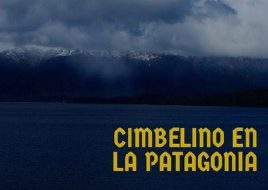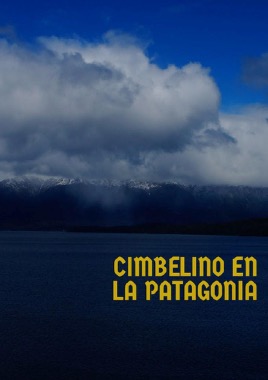
Cymbeline the Anthropocene is an international performance-research project which brings together seven theatre companies and environmentally committed productions from four continents. It is the first collective effort to present Shakespeare’s ecological insights to audiences beyond academia or the Anglosphere. Each contributing company has created locally site-specific and ecologically adapted performances of Shakespeare’s late tragi-comedy, Cymbeline. The companies, their performance titles, and the directors consist of:
“Gold and Silver Turned to Dust”; “Does the World Go Round?”
University of Exeter Drama students
Exeter, England
Director, Evelyn O’Malley
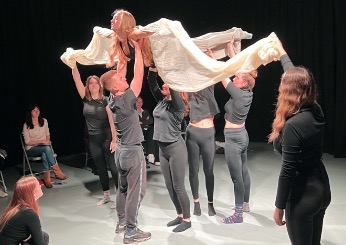
Cymbeline
Willow Globe Theatre company
Powys, Wales
Artistic Directors, Sue Best and Phil Bowen
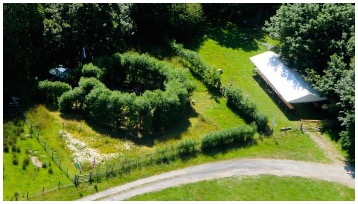
Cimbelino en la Patagonia
Setebos theatre company
Buenos Aires, Argentina
Artistic Director, Mónica Maffía
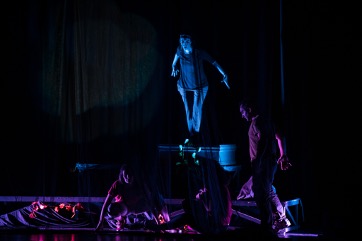
“Once Upon a Time in the Anthropocene”
Cornell University Department of Performing & Media Arts students
Ithaca, New York
Director, Theo Black
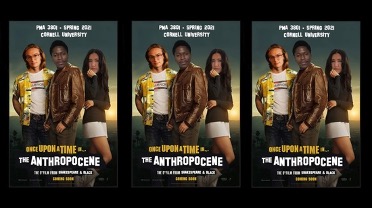
Cymbeline
Montana Shakespeare in the Parks
Bozeman, Montana
Artistic Director, Kevin Asselin
Dramaturge, Gretchen Minton
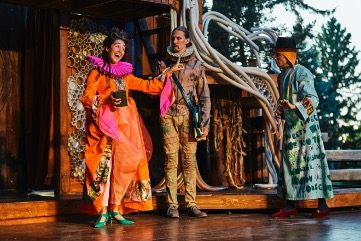
Imogen in the Wild
Shakespeare in Yosemite theatre company
Yosemite National Park and University of California Merced
Directors, Katherine Steele Brokaw, Paul Prescott, William Wolfgang
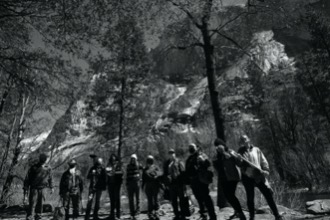
Cymbeline
La Trobe University Department of Drama students
Melbourne, Australia
Director, Rob Conkie
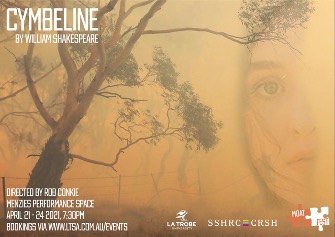
Generously supported by a grant from the Social Sciences and Humanities Research Council of Canada, Cymbeline in the Anthropocene’s main research goal has been to build an open-access archive documenting the performance creations and discoveries of participating companies. Their voluntary contributions have collectively created a compact global vision of contemporary Anthropocene conflicts, while also facilitating cultural exchanges and personal understanding of the era’s present-day impacts across global borders. The project’s research and dissemination activities continued throughout the Covid-19 pandemic, even though theatres world-wide were forced to suspend live performances for more than a year in 2020-21 (during which time, regrettably, we lost four originally participating theatre companies, including three non-English-speaking ones in Asia).
In weekly blogs since January 2020, the project website has built up a pioneering eco-theatre archive by tracking practitioners’ script and screenplay innovations, as well as their material invention of stage properties and soundscapes. The project leader, Prof Randall Martin, and website manager and project researcher, Dr Rebecca Salazar, have interviewed directors and performers to explore their environmental approaches and on-location experiences. The website likewise documents the adoption of the project’s public humanities outreach by university instructors and high school teachers who have assigned the project’s website materials in their courses.
Why performance?
We are living in the Anthropocene, an era of massive, human-caused environmental disruptions. Western and now global models of maximal resource extraction and free-market growth have set off climate, extinction, and sea-level crises on such a scale that it can be difficult to make sense of the damage or conceive of mitigating ways forward. Yet cultures around the world have always relied on forms of storytelling to (re)imagine our relationships with the earth. Stage drama, as a form of storytelling, has the added benefit of stirring spectators through shared physical and affective exchanges among actors, audiences, non-human animals, and their environments. Theatre has the power to help us understand the fundamental value of the world feelingly, to teach us empathy, and to stir individual and community ecological engagement.
Why Shakespeare?
Although Shakespeare’s canonical status today is often contested, and his work has historically been used as a tool of European imperialism, his works have been adapted into scores of global languages. Shakespeare presently remains the world’s most frequently staged playwright in diverse contemporary traditions far removed from his original early modern English one. Global familiarity and cultural adaptability make Shakespeare’s works particularly useful for mobilizing eco-theatrical practices on local as well as global scales.
While academic appreciation for Shakespeare’s environmental consciousness has grown in recent years, modern stagings, especially by commercial and/or state-subsidized theatres, have tended to avoid environmentally committed adaptations, partly for fear of offending corporate donors or “politicizing” Shakespeare. The seven companies collaborating in Cymbeline in the Anthropocene address this shortcoming in a ground-making venture in diversely inclusive ecodramaturgy — one that hopefully will encourage new interdisciplinary connections among scholars, theatre-makers, and environmentally concerned citizens.
Why Cymbeline?
At first glance, Shakespeare’s Cymbeline — which features a runaway princess, an evil step-mother, a war between Britain and Rome, and a final scene of farfetched revelations and idealistic reconciliations — doesn’t seem like an obvious choice for confronting today’s environmental crises.
But as a play of emotional and physical extremes, Cymbeline has come into its own as a realistic reflection of twenty-first century near-futures. Its central themes of personal resilience and global cooperation speak to the collective action people and nations must take to confront the intensifying climate crisis and its attendant breakdowns. Moreover, the play’s complex and outlandish storylines seem freshly apt for contemporary adaptation because the Anthropocene is changing earth-systems and defying conventional forms and genres on more fronts and larger scales than we’ve ever been able to comprehend.
Outcomes and futures
The network’s performance and knowledge-creation activities culminated in an in-person and livestreamed performance symposium in Bozeman, Montana on 18-20 July 2022, co-hosted by Montana Shakespeare in the Parks. After an introductory project survey by Randall Martin, participating theatre directors and dramaturges each made 10-minute presentations about their shows’ rationales and formative contexts, followed by half-hour videos illustrating the results. The event wrapped up with a private discussion among project contributors of what had been learnt and achieved, followed by a roundtable session open to in-person and live-streamed audiences and their questions.
A complementary concluding event was a documentary aired by the Canadian Broadcasting Corporation’s national and international radio programme, Ideas. It celebrated the originality, life-changing personal impacts, and community collaborations of Cymbeline in the Anthropocene. The show is now available in a podcast.
At the time of writing it remains only to migrate all the project’s videoed productions and research archive to a permanent university website. This will take place in 2023.


